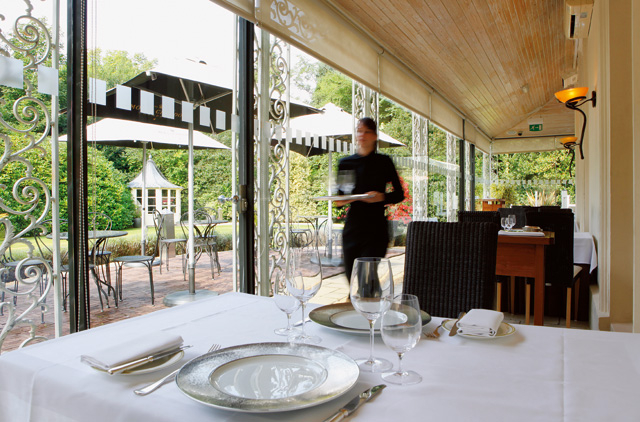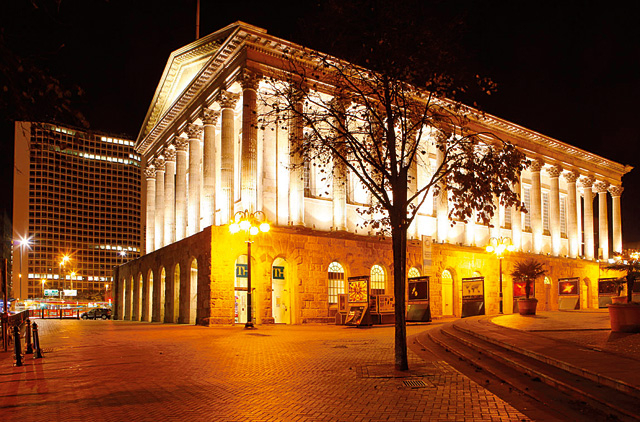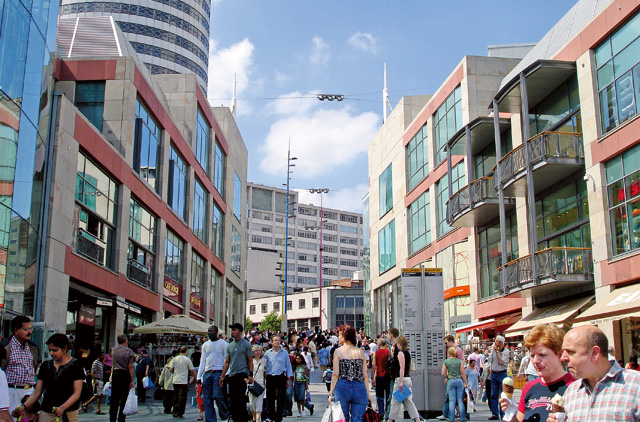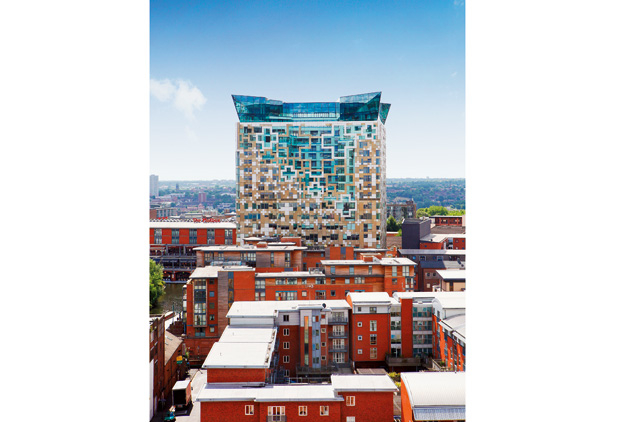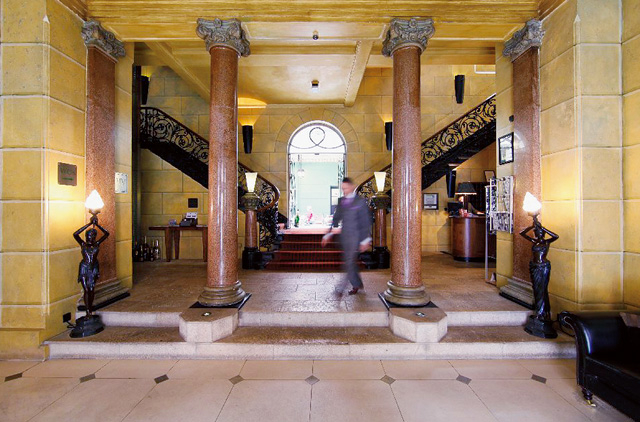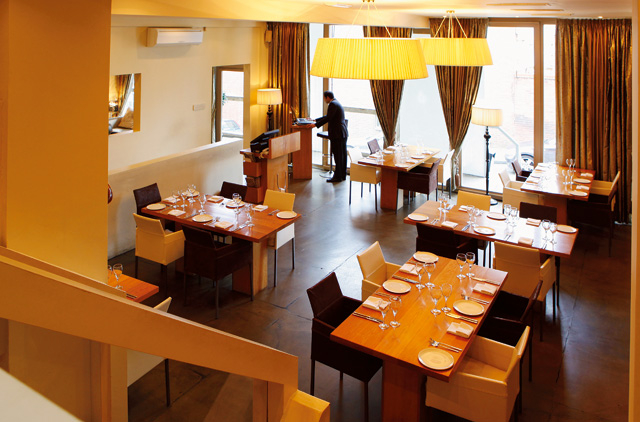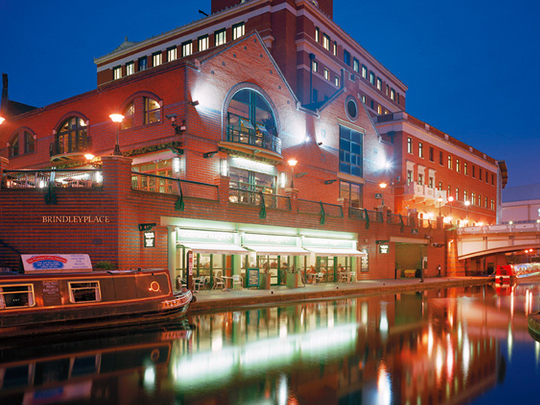
If you're embarking on a European eating tour, there are some cities that mustn't be missed. Paris, for its cafes, bistros and Michelin stars. San Sebastian for its markets and tapas bars. And Copenhagen for Noma, the world's best restaurant, as awarded by Restaurant magazine. But according to The New York Times, you can add another hot culinary destination to your itinerary: Birmingham.
In the newspaper's list of 45 places to go in 2012, Birmingham ranks 19th (one place above ‘space') as a desirable destination because of its gastronomic offering. Recently declared "Britain's foodiest town" by the BBC's Olive magazine - much to the spluttering incredulity of the London-based national press - Birmingham is finally being recognised as a burgeoning centre for excellence, diversity and creativity in food and restaurants.
Once the engine room of the Industrial Revolution, Birmingham made everything from guns to jewellery. It was also home to some of Britain's most iconic food brands: Bird's Custard, Typhoo Tea, Cadbury chocolate and HP Sauce. But in the post-industrial age, the former ‘workshop of the world' is manufacturing an appetite for great food, from its humble cafés, chip shops and curry houses to its fine-dining cathedrals.
There was a time when you could get thrown out of a Michelin-star restaurant just for having a Birmingham accent. But Brum - as it is affectionately known - is now home to three restaurants with Michelin stars, which is more than any other English city outside of London. Turners of Harborne, Simpsons and Purnell's all have a star each, and in Opus, Edmunds, Loves and Lasan, there are yet more top chefs banging on the door of Michelin stardom.
London might think it's got it licked when it comes to fine dining in England. But Birmingham-born chef Glynn Purnell is determined to prove the point that there's great food to be eaten beyond the capital.
"I've worked in France and Spain. I've seen and done it," says Purnell. "But my objective was always to come home and make Birmingham a culinary destination. If people stayed true to themselves and opened restaurants in their home towns, I think Britain would have a lot more than three restaurants in the world's top 50."
The food at Purnell's is certainly haute cuisine, but it's packed with references to the chef's working-class background. There's irony in his signature dish of poached egg in haddock foam with cornflakes and curry oil. Even party food gets a playful nod.
"I do cheese and pineapple on sticks. It reminds me of skidding on my knees at a social club," says Purnell with a crafty grin. "When you go to kids' parties there's always a baked potato wrapped in foil and all these cheese and pineapple sticks. So now I do goat cheese ‘royal' with eggs, set it like an egg custard, cut it square so you can put the pineapple jelly on the top. It looks just like cheese and pineapple on sticks."
Purnell - whose recently opened Ginger's bar and second restaurant The Asquith are also flourishing in the city centre - joined forces with fellow ‘Brummies' Andy Waters (Edmunds), David Colcombe (Opus), Luke Tipping (Simpsons), Richard Turner (Turner's) and Aktar Islam (Lasan) to form The Birmingham Chefs Alliance. The collective aims to develop fresh talent in the city, and to promote its food to a national media that often takes great delight in bashing Brum.
In the 1980s, the city gained notoriety for inventing the balti - a cheap and cheerful curry served in a steel bowl or wok. The ‘Balti Triangle' in Sparkbrook, an inner-city area in south-east Birmingham, became famous for its long loop of inexpensive Pakistani and Indian restaurants, which was seen by many outsiders to be the limit of Birmingham's culinary ambitions. But then along came Lasan in the city's Jewellery Quarter to debunk the theory once and for all. "The food at Lasan takes authentic flavours from the Indian subcontinent," says head chef Aktar Islam. "We're looking at contemporary Indian cuisine and delving into the culinary heritage. We're bringing some of the processes that have been lost back, re-inventing them and combining them with European methods of cooking to create the best possible dish."
Lasan was named Britain's best local restaurant on Gordon Ramsay's F-Word show for combining subcontinental flavours and local ingredients in a modern fine-dining context. "Unlike most Indian restaurants in the country, we use selected farms and animal breeds that work well with our style of cooking," says Islam. "For us it's about keeping the flavours as Indian as we can get, but using the best that we can source from the UK."
Birmingham's love affair with food can be felt right across the city. Farmer's markets in the city centre and the suburbs of Moseley and Harborne draw crowds, no matter how ‘British' the weather. Chamberlain's, a new fish and chip shop, has been named ‘best newcomer' in the National Fish and Chip awards, 2012. And there's also a thriving Caribbean and Jamaican restaurant scene to cater for Usain Bolt and the Jamaican Olympic team, who will be based in the city this summer.
Even the local Premier League football club, Aston Villa, has its own community restaurant concept. Villa Midlands Food overlooks the pitch at Villa Park and reaches out to the local community by offering jobs to disadvantaged young people.
For Richard McComb, restaurant critic for The Birmingham Post, the city's food renaissance is the real deal. "The development of Birmingham's food story in recent years has taken everyone by surprise, not least snooty London food critics. For a city to go from having no Michelin-star restaurants to three in a comparatively short space of time is a remarkable achievement."
McComb recognises a need for more middle-market restaurants in the city, and calls for improvement in the city's Chinese and Japanese offering. But overall the feeling is that this is just the beginning. "The hope is that Birmingham's now-established network of top chefs will inspire a new generation of young professionals," says McComb. "Instead of thinking that they have to go to London to ‘get on', they will see that they can progress their careers by staying in Birmingham."
Where to stay
Hotel Du Vin
Top-end hotel set in a beautiful red-brick Victorian building that was once Birmingham's eye hospital.
Church Street, Birmingham, +44 (0)121-200-0600, www.hotelduvin.com/hotels/birmingham
Nitenite
Very modern city centre hotel, rooms are as tiny as the price.
Holliday Street, Birmingham, +44 (0)845-890-9099, www.nitenite.com
How to get there
Emirates fly direct to Birmingham daily, from Dh4,130.
Five of Birmingham’s best
Purnell's
Refreshingly unpretentious Michelin-star food in the financial district.
55 Cornwall Street, Birmingham, www.purnellsrestaurant.com
Simpsons
Elegant Michelin-star fine-dining in Georgian Grade-II-listed townhouse.
20 Highfield Road, Edgbaston, Birmingham, www.simpsonsrestaurant.co.uk
Turners of Harborne
Excellent-value Michelin-star food in the suburbs.
69 High Street, Harborne, Birmingham, www.turnersofharborne.com
Lasan
Faithfully authentic Indian in a contemporary European environment.
3 to 4 Dakota Buildings, James Street, St Paul's Square, Birmingham, www.lasan.co.uk
Loves
Contemporary British fine-dining overlooking Birmingham's famous canal network.
The Glasshouse, Canal Square, Browning Street, Birmingham, www.loves-restaurant.co.uk


